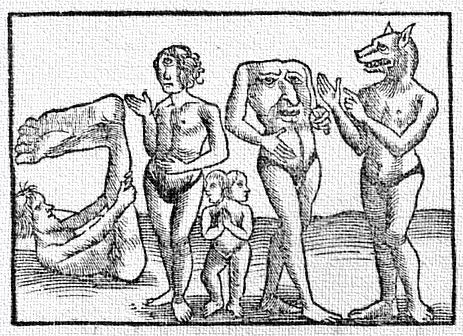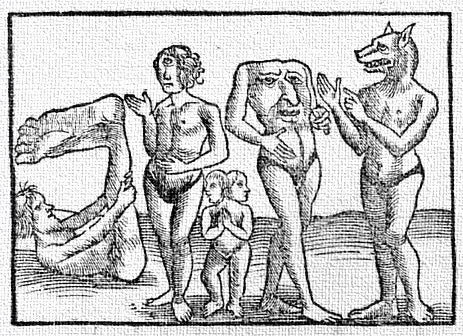 A BBC story reports : Lab tests on a consignment of rice seized by Nigerian customs officials show that the product is "contaminated" but not with plastic, the National Agency For Food and Drugs (Nafdac) says.
A BBC story reports : Lab tests on a consignment of rice seized by Nigerian customs officials show that the product is "contaminated" but not with plastic, the National Agency For Food and Drugs (Nafdac) says.Drat. What a waste of a good story? Trump would have loved it.
Just when I was starting to visualise groups of evil oriental scientists (presumably Chinese; yes, we can blame anything on them these days) in starched white coats, in bright space-age labs focussed on inventing plastic rice (as they did with eggs some years ago) ...
What's amazing is not that fake news exists, but why so many people still believe and spread them.
In European chronicles and tradition from the 12th through the 17th century, from accounts of Western travelers, Prester John, a mythical Christian King, who ruled over Muslims and pagans of the Orient, over 72 countries, beyond the eastern limits of the Roman Empire.
In those lands, people lived for 200 years, men had horns on their foreheads or three eyes, unicorns roamed, and women warriors fought on horseback, and there were cannibals, elephants (admittedly a strange beast, that), headless men with faces on their torsos, pygmies, rivers that flowed out of Eden, and the fountain of youth. (Okay, some were true.)
Why travellers would want to exaggerate is not surprising; men do it all the time in bars around the world, basically to make themselves look good. (They didn't have Facebook or blogs in those days.) But why did listeners believe them, especially when they knew that the travellers were lying? And worse still, spread the fake stories. To make themselves feel important?
The influence of that fake news of centuries ago persists today, this fear of the other, of the monsters. They may no longer believe in headless men, but many in the West (including Europe) still think that Orientals (and Africans) have little tails in their behinds, and that many still live on trees. (And, they don't speak English!)
We could explain all this away as a basic survival instinct of the tribe, to round the wagons against the "monster" enemies. In the Orient, we have terms like rakshsa, piscasa, gergasi and the like, to "monsters", the other. (They were mostly aboriginal tribes.) Don't let them through! Hide your young. These monsters will eat babies alive!
Still, the modern-day seduction of the "lie" over any "truth" would make a fascinating study. If one picked random persons on the street and told them two stories: one a lie, and the other a truth, and asked them which they preferred to believe (not what they thought was true), what chance would "truth" have? I'd think, the truth would lose miserably every time.
Magic is, arguably, still the most widespread belief system in the world. Is that a "truth"? In this day, one would like to believe that science, and logic, and reason would win hands down. Sorry, not true. Ignorance? Maybe, but whose fault is that? It is an irony that, as knowledge expands, more people, not just remain, but regress into ignorance. The gap between the "haves and have-nots" today is not about money or wealth, but knowledge. It is huge gap, and growing.
Might as well believe in magic, right?
As a young graduate doctor said to merecently, "My mother would rather take the word of our gardener for a cure, than believe me. What do doctors know, she says. Besides, the gardener has a smartphone, and WhatsApp."
